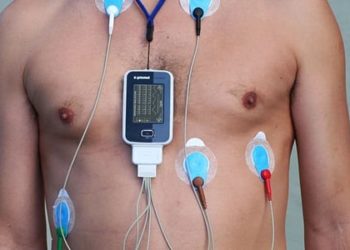Low-dose alteplase did not show differential benefits across age, ethnicity or severity of stroke compared with standard-dose
1. In this secondary analysis of the Enhanced Control of Hypertension and Thrombolysis Stroke Study (ENCHANTED), there were no significant difference in treatment effects between low and standard-dose alteplase for death or disability in acute ischemic stroke across age, ethnicity, or severity.
2. This trial did show that there were fewer symptomatic intracerebral hemorrhages in the low-dose alteplase group, however the risk also did not differ significantly across age, ethnicity or severity.
Evidence Rating Level: 3 (Average)
Study Rundown: Alteplase is used for thrombolysis in acute ischemic stroke (AIS). Previous studies have shown that lower doses of alteplase result in a lower risk of symptomatic intracerebral hemorrhage however it remains unclear in whom lower doses may provide the most benefit as compared to standard-dose intravenous alteplase. This secondary analysis of the Enhanced Control of Hypertension and Thrombolysis Stroke Study (ENCHANTED) aimed to assess the treatment effects of low-dose versus standard-dose intravenous alteplase and their association with age, ethnicity (Asian vs. non-Asian) and severity of AIS.
There were no significant differences in the treatment effects between low and standard-dose alteplase for poor outcome (defined as death or disability) at 90 days across age, ethnicity or severity. Results were similar for functional outcomes also, showing no difference between low- and standard-dose alteplase. There were reductions in the rate of symptomatic intracerebral hemorrhage with low-dose alteplase however this did not differ significantly across age, ethnicity or severity. Strengths of this study include analysis of a large sample with good follow-up and treatment adherence however the initial trial was performed in a majority of Asian ethnicity and thus may impact generalizability to North American populations.
Click to read the study, published in JAMA Neurology
Relevant Reading: Low-Dose versus Standard-Dose Intravenous Alteplase in Acute Ischemic Stroke (ENCHANTED)
In-Depth [secondary analysis]: This study was a prespecified secondary analysis of the ENCHANTED trial. The ENCHANTED trial was an international, randomized, open-label, blinded, clinical trial that compared low-dose vs. standard-dose intravenous alteplase for patients with AIS. It took place between March 2012 and August 2015 and included patients with clinical and image confirmed AIS who were eligible for thrombolysis. Patients were randomized to low dose (0.6 mg/kg; 15% as bolus and 85% over 1 hour infusion) or standard dose (0.9mg/kg; 10% as bolus and 90% over 1 hour infusion). The secondary analysis was conducted between May 2016 and April 2017. Primary outcomes of interest for the secondary analysis included death and disability as scored by the modified Rankin Scale at 90 days. Logistical regression models with statistical testing for interaction were used for this secondary analysis.
The ENCHANTED study included 3310 patients with clinical and imaging evidence of AIS, of which 3297 patients were used for this secondary analysis. There were no significant differences in treatment effects found between low-dose or standard-dose alteplase across age, ethnicity (Asian vs. non-Asian) or severity, all p >0.37 for interaction. Results were similar for functional outcomes also, showing no difference between low- and standard-dose alteplase. Reductions in symptomatic intracerebral hemorrhages also were seen in the low-dose group however these reductions did not differ statistically across age, ethnicity or severity of AIS.
Image: CC/Wiki
©2017 2 Minute Medicine, Inc. All rights reserved. No works may be reproduced without expressed written consent from 2 Minute Medicine, Inc. Inquire about licensing here. No article should be construed as medical advice and is not intended as such by the authors or by 2 Minute Medicine, Inc.







